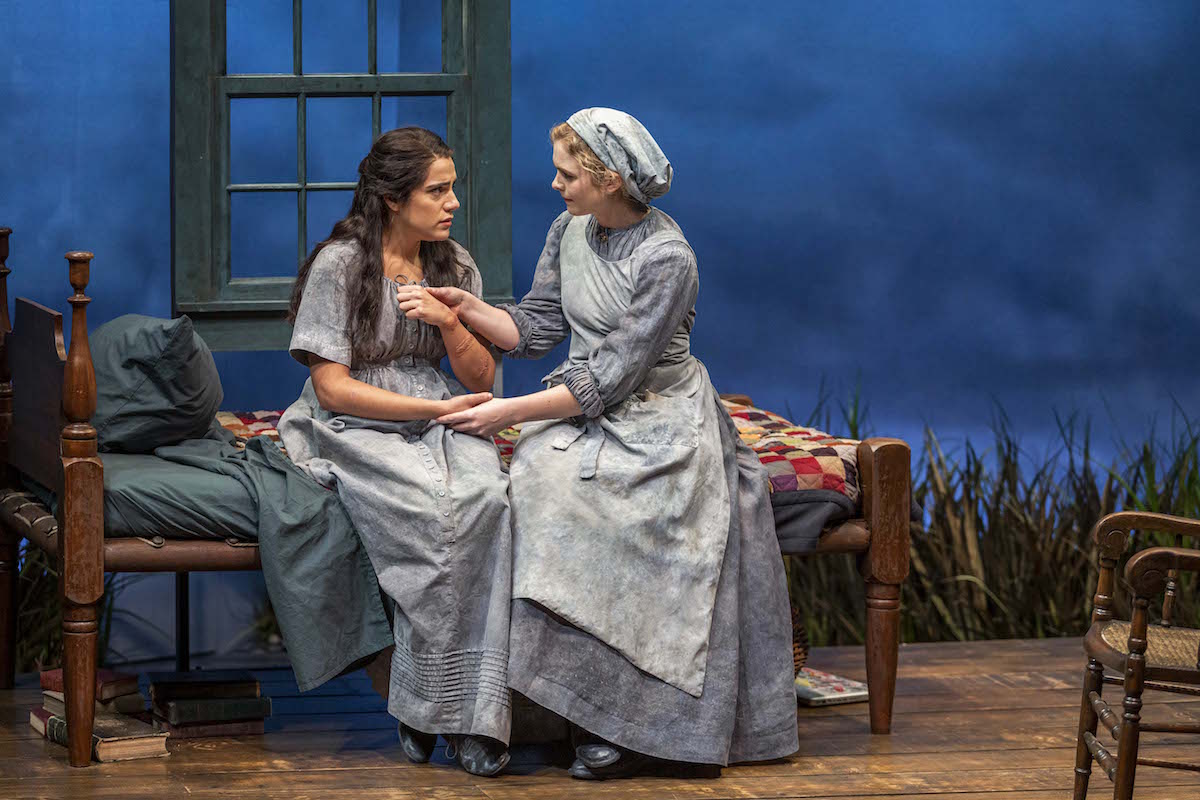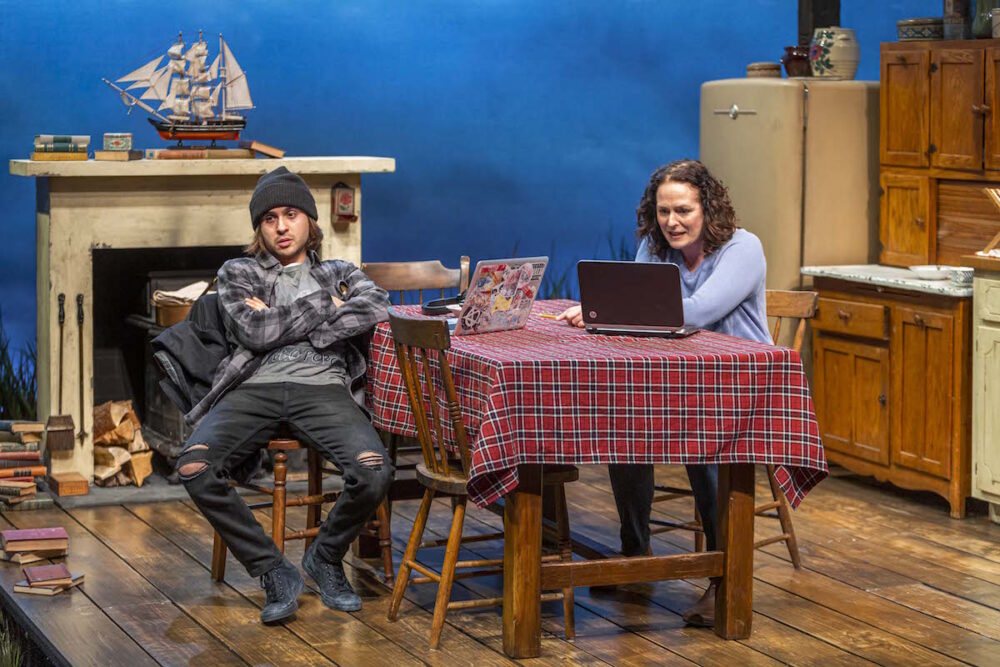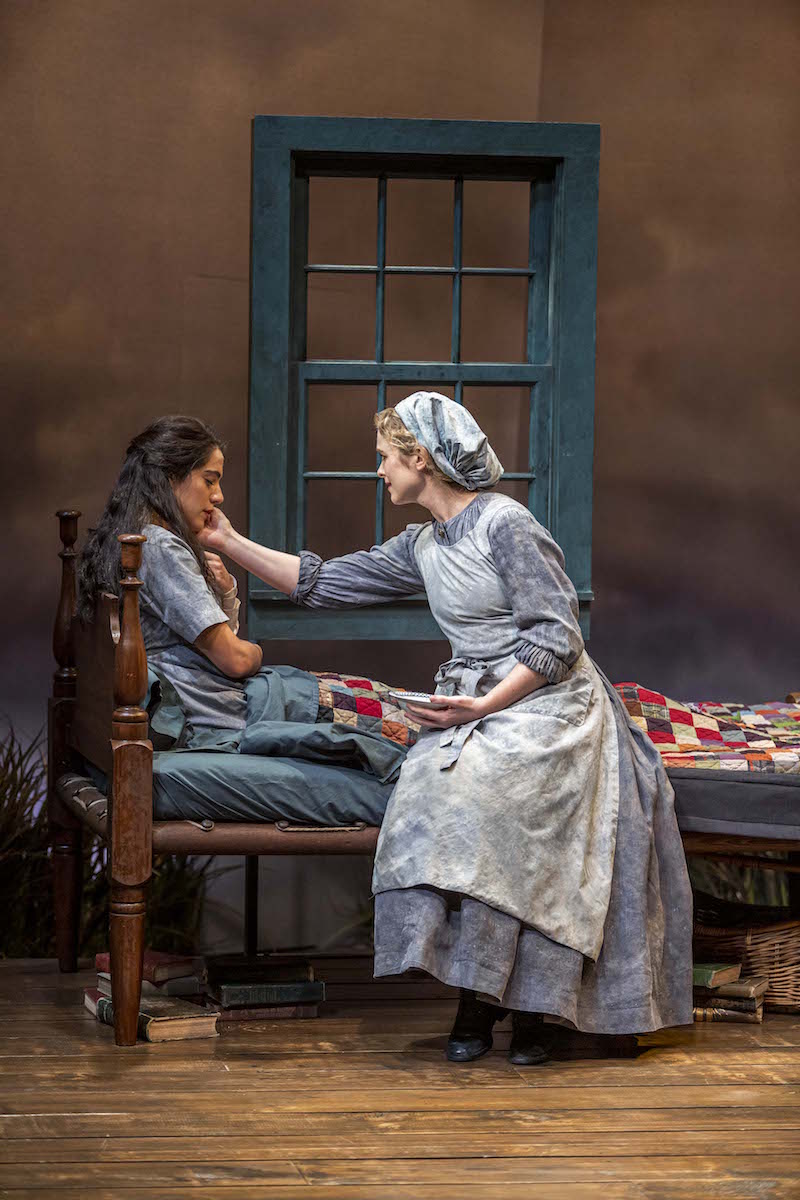Playwright Dishes Up Queer Activism at DCPA with ‘You Lost Me’

Intersectionality, accessibility, and squashing the sexist, patriarchal norms through queer…
The Denver Center for the Performing Arts (DCPA) is known for the ability to sift through the long list of live, theatrical productions and deliver pure gems to audiences. Now, the creative group is rolling out the world premiere to Colorado audiences with You Lost Me, a play about second chances.
Worlds and time collide as the stories of two Ann Harveys are intertwined between present day and an event that occurred almost 200 years ago. In 1828, 17-year-old Ann Harvey saved 160 Irish people from a wreck off of Newfoundland’s Shipwreck Coast, making her an instant hero. Present day, the Harvey family homestead has become the Shipwreck Inn where proprietress Ann Harvey is attempting to leave her own mark on the historical landmark with a tourist blog. Her nephew Joe-L, on the other hand, would do anything to leave his hometown and start a new life somewhere else.
Playwright Bonnie Metzgar has written this memory house for all those lost at sea in You Lost Me, and is returning to Denver to host the Eugene O’Neill National Playwrights Festival finalist at DCPA. The former artistic director at Curious Theater Company recently spoke with OUT FRONT about the poetic, wistful, and bright, new drama that reminds us that every moment holds the opportunity to change everything.
What is the main theme of You Lost Me?
It has this incredible, female heroine from history, and I kind of went looking for a little-known heroine. That single person who, against all odds, made a decision that changed things for the better for a lot of people. I thought that it was the kind of story we really needed to know in a time where there are really big challenges, and we are all in the position where we have to decide what to do.

Can you give us some background on this heroine?
I came upon this story about this woman named Ann Harvey who lived on the southern coast of Newfoundland and one day, when she was 17 years old, she was with her brother, her dog, and her dad, and something washed up on the shore. There was no one for miles and miles and they realized there must have been a shipwreck. She set out with a dog and her brother in one boat and her dad in another boat, and they start rowing, and they found almost 200 Irish immigrants alive on a rock with their boat smashed in half.
Over the course of 48 hours, she and her brother basically pulled, hand over hand, all these people off this rock; she saved 161 people off the rock. She was eventually given a medal by the King of England and recognized for for saving all these people.
How did that give you the idea to write You Lost Me?
I thought, ‘Oh, I wonder what’s happening in that town now?’ I started to research, and I correspond with people in the town, and so this play is really about that moment in time when this very isolated event happened when it was wilderness, and now Newfoundland is kind of like West Virginia. It has like the highest unemployment, so what happens to a 17-year-old now and Newfoundland, it really explores those two stories.
There also seems to be a theme of escape and that second chances are not necessarily saving yourself within the environment you’re in, but getting out can be saving yourself, too.
Absolutely, some of us are are drawn to home, and some people find really comforting the idea of nesting and staying in one location, and other people just have wanderlust and really want to see the world and want to keep moving. It’s not like, there’s one answer, right? It’s that really what we’re searching for, the feeling that is right for each of us, and sometimes, people are kind of thrown together and then torn apart.
You’re well-known for using your playwriting and direction as a form of activism; how is You Lost Me an example of that?
I’m really interested in how queerness has really been scrubbed from history, or has never really been recorded in history. In some ways, it’s because there wasn’t necessarily always language for it. So, I decided to write it into the story because clearly there were some queer people amongst the 161 people depending on how one thinks about sexuality and gender identity. I have written into the story how Harvey comes in contact with this woman who is one of the survivors, and this queer encounter and kind of love that happens between these two women over this very intense two-week period of time.
 I heard you also tackle the topic of same-gender marriage. How do you incorporate that?
I heard you also tackle the topic of same-gender marriage. How do you incorporate that?
There’s a whole part of the play featuring an American, lesbian couple who travel to the shipwreck Inn in Isle aux Morts and have a far-ranging argument about gay marriage—should they get married or not? Also, the play features a present-day Ann Harvey, who is a descendant of the original Ann, and she runs the Inn that’s been in the Harvey family home for generations. The Americans tell Ann she should market the Inn to gay couples since now ‘everyone is getting married!’
How was writing You Lost Me different than other pieces you’ve written?
I guess the difference is that instead of writing about issues, although this play actually does touch on issues for queer people, it’s really about individuals and agency. This is really about what do we each owe each other, not just in terms of a queer question, but stepping much, much further back and what are we willing to do for each other. Certainly, these days, we’re asking that in terms of the planet, but really, as a member of this community, are you willing to take action? Are you willing to be an advocate; are you willing to fight for people who are different from you and put aside whatever you’re ‘supposed’ to do to help those other people? No matter how we identify, that kind of activism of, ‘Today, I’m going to be in service to make the world a better place.’ You know, building blocks, foundational activism is really important, as important as individual issues.
What has been challenging about putting together You Lost Me?
In theater in general, one of the things that you’re always up against is the clock in the sense that of course you only have a certain number of weeks before the audience shows up. But also, the clock of, like, the curtain starts at 7:30, and then people start yawning maybe an hour and 45 minutes, or two hours later, so you got to make your play happen in there. As a playwright, your job is to cut stuff; you gotta leave stuff out, so all I would tell you is, there are lots of things on the cutting room floor that I did not anticipate getting cut from the play. You think it’s going to be one way on the page, and then you see it in the rehearsal room, and you realize, ‘Oh, we can do that in this exchange of a look between two people; we don’t need these five lines.
How has it been working with DCPA during the rehearsal process?
Oh my God, well, it’s amazing! Like, in rehearsal, the present-tense part of the play, there’s these really hilarious, fantastic, like, dirt baggy teenagers who are hanging out on the rocks, and one of the actors was like, ‘I wonder if he had, like, a video camera, we can make, like, a Jackass YouTube videos. And, all of a sudden, like 10 minutes from props, there’s a video camera. All they do is try to make the process be as rich and supported as possible. Like a dream, it’s a dreamy, dreamy place to make theater.
You Lost Me opens at DCPA’s Rickertson Theater on January 17 and runs through February 23. Tickets can be found at denvercenter.org.
*Photos by Adams VisCom, courtesy of DCPA.
What's Your Reaction?
Intersectionality, accessibility, and squashing the sexist, patriarchal norms through queer pearls of wishful wisdom.










